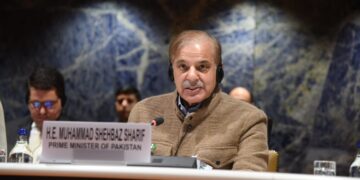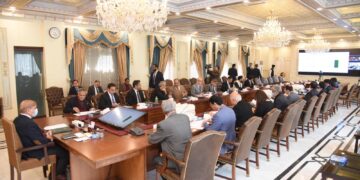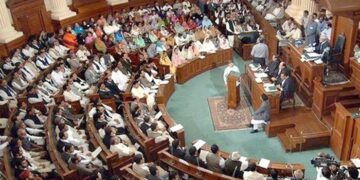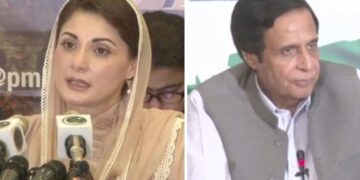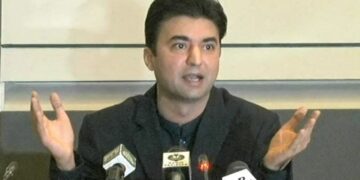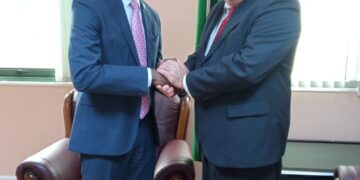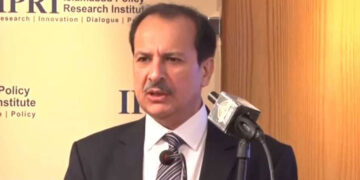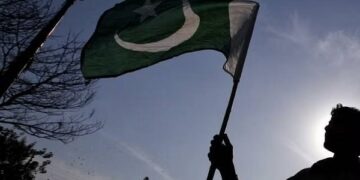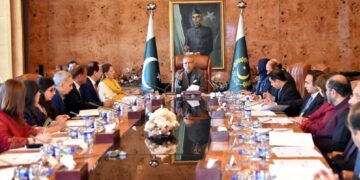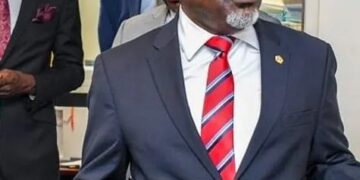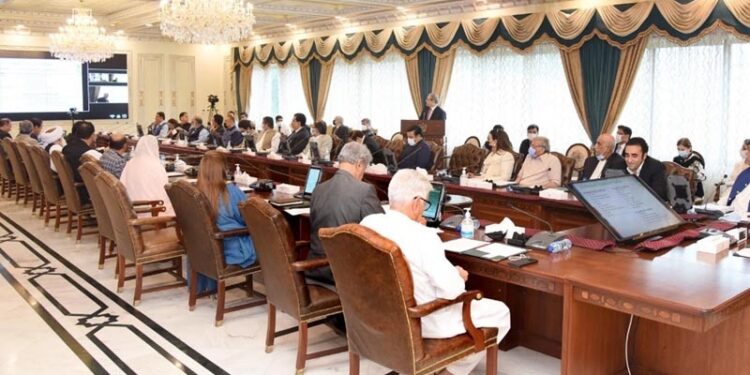On Thursday, the nation’s economic administrators reiterated their promises that Pakistan was not on the verge of defaulting, the currency had stabilised (despite falling 0.83%), and the nation had enough gasoline to last for more than a month.
While the prime minister expressed concern over the local currency’s record depreciation against the dollar during a cabinet meeting, Defence Minister Khawaja Asif called for an immediate end to the recent “executive allowance” given to top government officials in a press conference alongside Finance Minister Miftah Ismail.
Separately, Khurram Dastgir, the energy minister, said that the nation’s petroleum product stocks were at a “historic level.”
Defence Minister Khawaja Asif called on Thursday for a complete end to the “executive allowance” recently given to top government employees and other similar extravagant lifestyles supported by tax dollars, acknowledging that ongoing policy measures by the government along with outside factors would cause many middle-class people to fall below the poverty line.
According to Mr. Asif, “the permanent government, by which I mean the bureaucracy and others, would have to share the load collectively to ensure that the common man feels that they are not paying the price alone but shared by the entire nation.”
He claimed that the dollar had reached a 20-year high and that this was the main reason for the rupee’s decline, which saw it drop to 227 to the dollar from 204.85 on June 30.
Despite stating that Pakistan’s government should be scaled back as much as feasible in light of the situation, he added that it was still too big and remained in charge of many tasks that the private sector ought to be performing. He also emphasised the necessity for habitual changes and insisted that only daytime hours should be used for business.
The defence minister said the government had already approved changes to laws to facilitate government-to-government transactions and legislation would be finished in a few days. The minister is a member of a cabinet committee on importing coal from Afghanistan and engaging with friendly countries for financial support.
He claimed that while their investment firms and sovereign funds were interested in many other companies that had been on the list of companies to be privatised for years, the Middle Eastern friends had indicated interest in investing in listed companies.
In response to a query, Mr. Asif stated that after a group from Kabul returned, plans would be made to enhance coal imports for power plants.
Speaking at the event, Finance Minister Miftah Ismail said that such transactions needed time to complete and that inflows from friendly nations could not flow so swiftly.
The coalition partners’ announcement to complete the remaining constitutional term through June of the following year, he stated, had brought the currency market under control. He promised to make a timely announcement if any of the international transactions actually happen.
He claimed that the hoarding of petroleum products that had been imported when the government was offering significant subsidies had led to the reduction of imports, and that as a result, Pakistan now had enough gasoline to last for more than 30 days and diesel and furnace oil to last for about two months.
However, as a result of increasing prices, consumption had also decreased. “We have made tough decisions and we have no regrets. We will use our political capital to defend the nation. We will carry out the task once more, he declared.
Despite the exchange rate, all indicators, according to Mr. Ismail, point to a healthy economy. He added that the SBP had also taken action to stifle imports. In response to a query, he stated that the SBP governor would be chosen the following week and that the board of directors would be informed at any moment.
Fuel reserves are at a record high.
The PML-N-led coalition government’s commitment to stabilising the economy and preventing the effects of a “international energy crisis” from manifesting here, according to Energy Minister Khurram Dastgir, was made clear by the fact that petroleum product reserves were at a “record level,” he added.
Mr. Dastgir made comparisons between Pakistan and “another country in the region that is facing economic difficulties” while speaking at a press conference in Islamabad with State Minister for Petroleum Musadik Malik. It appears that he was alluding to Sri Lanka, whose government was forced to resign after months of economic turmoil there.
Lessons from the Lankan meltdown
The fact that the nation ran out of petroleum goods, according to him, was the clearest sign of economic unrest in the nation. For four days, people had to wait in line to get gasoline. However, we have 34 days’ worth of gasoline and two months’ worth of diesel stockpiles here.
“Significantly lowered import bill”
Musadik Malik told reporters that the country’s use of gasoline had decreased 9 percent to 704,000 tonnes in June from roughly 778,000 tonnes in the same month a year earlier, signalling a gradual decline in petroleum product imports. Diesel oil, which is used in agricultural equipment and large trucks, saw a similar 8–9% fall in sales.
He said that his ministry was in charge of the situation on a daily basis and that no needless imports were permitted. In addition, he emphasised that “record-high” gasoline and diesel stocks did not pose a threat of a scarcity of petroleum products.
Cabinet gathering
At a cabinet meeting on Thursday, the prime minister promised to reduce the nation’s escalating petroleum product costs by the end of the next month.
The meeting was told by Finance Minister Miftah Ismail that “all essential actions are being taken to bring down the dollar rate and by the following month the rupee would stabilise versus the dollar.”
The meeting was presided over by the prime minister via video link, who is spending a few days in Lahore ostensibly to closely monitor the Punjab chief minister election that will take place today (Friday).
Mr. Sharif expressed alarm over the local currency’s unprecedented decline versus the dollar, according to the Prime Minister’s Office.
Other significant decisions were made by the government, such as approving the Multi-Model Air-Road Corridor policy for trade with neighbouring Afghanistan.
Additionally, it ratified a “trade in products” agreement with Turkey, which will reduce Pakistan’s tariffs on 261 commodities and grant zero ratings on another 123. In exchange, Pakistan will ease 130 tariff lines and industries like steel, engineering, chemicals, rubber, leather, and plastic for Turkey. It is anticipated that the accord will increase bilateral trade to $5 billion.
